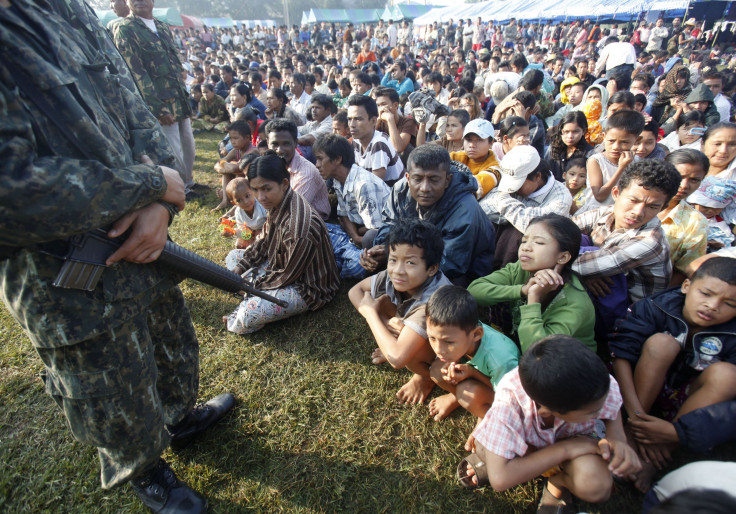Thailand To Deport Burmese Refugees, Activists Decry Lack Of Clear And Transparent Policy

Thailand’s military junta stated on Monday that it is planning to deport more than 100,000 Burmese refugees living in camps along its border with Myanmar, Reuters reported Monday.
Close to 120,000 refugees, many of whom fled Myanmar over the years, fearing persecution at the hands of a repressive military regime and sporadic ethnic clashes in the north and northeast of the country, have been living in 10 camps along the Thailand-Myanmar border for close to two decades. Burmese refugees constitute a large chunk of Thailand’s workforce, and according to Thailand's labor ministry, nearly 1.5 million, or 85 percent of migrant workers in the country, are from Myanmar and are mostly employed in low-paying jobs in the construction and fishing industries.
“We are not at a stage where we will deport people because we must first verify the nationality of those living the camps,” Veerachon Sukhontapatipak, a deputy spokesperson for the Thai army, told Reuters.
The Bangkok Post, however, claimed that preparations for deporting the Burmese refugees had already begun and that the process would be finished within a year.
“We have divided them (the refugees) into three groups, covering those who want to return to Myanmar, the group that wants to stay in Thailand and the group that wants to resettle in a third country,” an unidentified Thai military source told The Bangkok Post.
The announcement on Monday comes barely a month after comments made by a junta spokesperson threatening to arrest and deport undocumented migrant workers sparked the exodus of more than 200,000 Cambodians. The military junta has since opened service centers across the country to help migrants secure work permits.
In a televised address on Friday, junta leader and acting Prime Minister of Thailand, General Prayuth Chan-ocha, stated that Thailand and Myanmar would work together to ensure a smooth repatriation of the refugees “in accordance with human rights principles.”
However, a lack of transparent and clearly defined policy to deal with refugees has caused concern among human rights groups and activists.
Sunai Phasuk, a senior researcher employed with Human Rights Watch, told Reuters that General Prayuth had failed to specify the criteria for the return of immigrants to Myanmar. He added that Thailand’s military junta would have to ensure that it does so “under conditions expected by the international community.”
The United Nations refugee agency, the UNHCR, is reportedly overseeing the operation and has offered to provide land and financial assistance to the deported refugees.
© Copyright IBTimes 2025. All rights reserved.






















